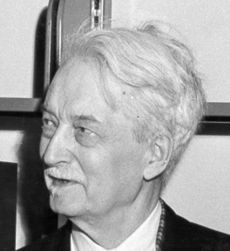Jacques Maritain (1882-1973) was a French philosopher and, over the years, a professor at several universities in Europe, the US, and Canada.
He was a prominent personality within Thomism, a philosophical tradition deriving from the thought of St. Thomas Aquinas, which has been a central element of the Roman Catholic Church’s official philosophical foundation since the late 19th century. He made significant contributions to all the basic philosophical disciplines, from epistemology and political philosophy to aesthetics and philosophy of religion.
.

Maritain argued for what he called integrated humanism. He held the view that if the spiritual dimension of being human is denied, we then have not a whole, but merely a partial humanism that ignores a very basic aspect of the human person.
Maritain believes it to be both possible and desirable for religious people and humanists to cooperate in the political sphere. Both usually agree on the value and importance of love for one’s neighbor, service in truth, and the dignity of the human person. According to Maritain and Thomism, these values correspond to the perception of reason and the primary dispositions of our nature.
Even though they are deduced and conceived of differently by those with varying convictions, the agreement on the basic tenor and implications of these values is real, and it enables cooperation in the practical sphere.
The acceptance of pluralism and tolerance was thus central to his vision, and Maritain therefore gained respect in a number of contexts. He played a significant role as one of the architects behind the UN human rights declaration of 1948.
Maritain had a close relationship with another great figure in French personalism, Emmanuel Mounier. Both were convinced that the current civilization was subject to a crisis and that a new kind of humanism was needed.
Mounier was strongly influenced by Maritain’s thought, and more specifically by his Thomist anthropology, his demand for active social engagement, and his view of society and political philosophy.
.
